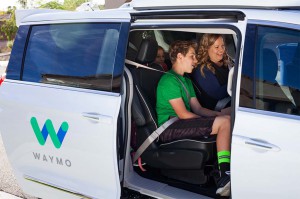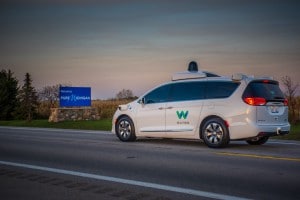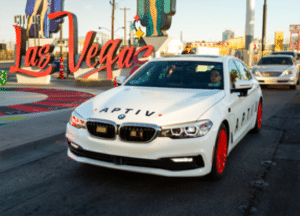
Waymo’s been ferrying passengers around the Phoenix area in autonomous Chrysler Pacificas for some time now.
There are hundreds of autonomous vehicles now operating on U.S. roads, Lyft and Waymo currently using them in their ride-sharing services in Las Vegas and Phoenix, respectively.
Yet only about 12% of Americans are ready to fully trust the technology, according to a new study by AAA, with the majority of U.S. adults concerned about issues like safety, hacking and who would be responsible in the event of a crash.
On the positive side, the survey of 1,301 American adults found a willingness to learn more about self-driving technology. It also revealed that people who have actually ridden in autonomous vehicles are more likely to feel comfortable with them.
(Cruise gets okay to carry passengers in California.)
“Consumers have made it clear what it will take to overcome their doubts – consistent and transparent information – which will help make them feel safer about the idea of riding in a self-driving car,” said Greg Brannon, AAA’s director of Automotive Engineering and Industry Relations.

Waymo’s autonomous ride service, Waymo One, is already in service, using Chrysler Pacifica minivans.
The latest in a series of annual studies by the road safety and travel service found that even as more and more autonomous vehicles have taken to public roadways, Americans remain highly skeptical.
Some of the key findings:
· Barely one in eight of those surveyed trust riding in autonomous vehicles, with 28% being unsure how they feel;
· Compared to prior studies, AAA officials conclude that Americans are “stuck in neutral” about whether they will accept self-driving technology;
· Six in 10 Americans want a clearer understanding of who would be responsible in the event of a crash;
· Half want to know how vulnerable the technology is to being hacked.
More than half want laws put in place to ensure the safety of autonomous vehicles. Currently, there is a hodgepodge of individual state regulations concerning the use of the technology on public roads. Efforts to come up with a uniform federal standard have been stalled on Capitol Hill for several years, though key lawmakers have been signaling in recent weeks that they may soon have a bipartisan compromise in place.
(Lyft surpasses autonomous rides milestone.)
Most transportation experts now believe autonomous vehicles – including those that can operate completely without a human backup operator – will become commonplace on the world’s roadways. The bigger question is when. A number of automakers already offer semi-autonomous systems, such as General Motors’ Super Cruise and Tesla’s Autopilot. And even more advanced systems are now being tested on public roads.
Federal regulators recently authorized pilot programs using completely driverless vehicles, though it is far from certain when such technology would go into routine operation.
Ride-sharing companies are among the biggest proponents, seeing fully driverless vehicles as a way to reduce costs and challenge the traditional vehicle ownership model. Lyft, for one, last month announced that it had given its 100,000th ride in Las Vegas where it uses vehicles with backup operators as part of its regular service.
That’s in line with one of the key findings from the AAA study which revealed that 69% of those surveyed feel better about having a trained backup operator at the ready in services like the Lyft pilot in Las Vegas. Meanwhile, 72% of the respondents said they’d want to have the ability to take over control of the vehicle themselves if there was no backup driver onboard.
Whether that will be possible is uncertain. Some driverless prototypes do feature foldaway controls. Others, like the Cruise Origin shuttle unveiled in January, offer no way for a human to retake control.
(Power study finds “total lack of trust” in autonomous vehicle technology.)
“AAA’s automated vehicle survey tell us when people have the opportunity to take back control or even build their understanding of how this technology works, they are much more likely to embrace it,” said the service’s engineering chief Brannon.


